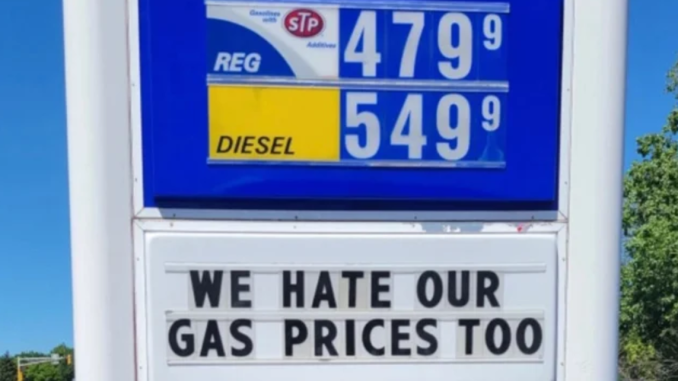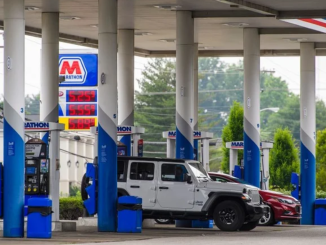
As gas prices skyrocketed this spring, Chuck Graff heard rumblings from the frustrated customers of his St. Anthony, Minn., gas station and service center. Some told him they were scaling back summer travel plans to their Northwoods cabins. They didn’t understand why prices were rising so fast, and they worried about how much higher they could go.
But the rising gas prices have also been difficult for Graff, the owner of Murphy’s Service Center, a family business started by Graff’s father in 1958. Graff’s wholesale costs for fuel have skyrocketed, too, crimping his cash flow, he said. And with customers spending more on gas, they’re spending less inside Graff’s convenience store, where sales are down about 18 percent.
To let his customers know that he felt their pain, Graff posted a message last month on the sign outside his station: “We hate our gas prices too.”
“It was just kind of a way to show a little empathy,” Graff said of the sign that gained him national attention. “We know it’s hitting you in the pocketbook, and we don’t like it either.”
Last weekend, in the days before the Fourth of July holiday, President Joe Biden posted a tweet that took aim at gas-station owners like Graff, seemingly pointing the finger at them and accusing them of gouging customers and unnecessarily contributing to the near-record gas prices.
“My message to the companies running gas stations and setting prices at the pump is simple: this is a time of war and global peril. Bring down the price you are charging at the pump to reflect the cost you’re paying for the product. And do it now,” Biden tweeted.
Biden’s tweet was mocked as economically illiterate, and he was accused of demagoguing an industry that he seemingly knows little about. There are 116,641 convenience stores that sell about 80 percent of the gas in the U.S., and more than half of those stations, or 55 percent, are single-store operators, according to the National Association of Convenience Stores, or NACS. National Review reached out to gas-station owners across the country, and they pushed back on the idea that they’re gouging customers or are otherwise to blame for rising gas prices, which have been creeping up since they bottomed out during the worst of the Covid-19 pandemic.
* Article from: The National Review

